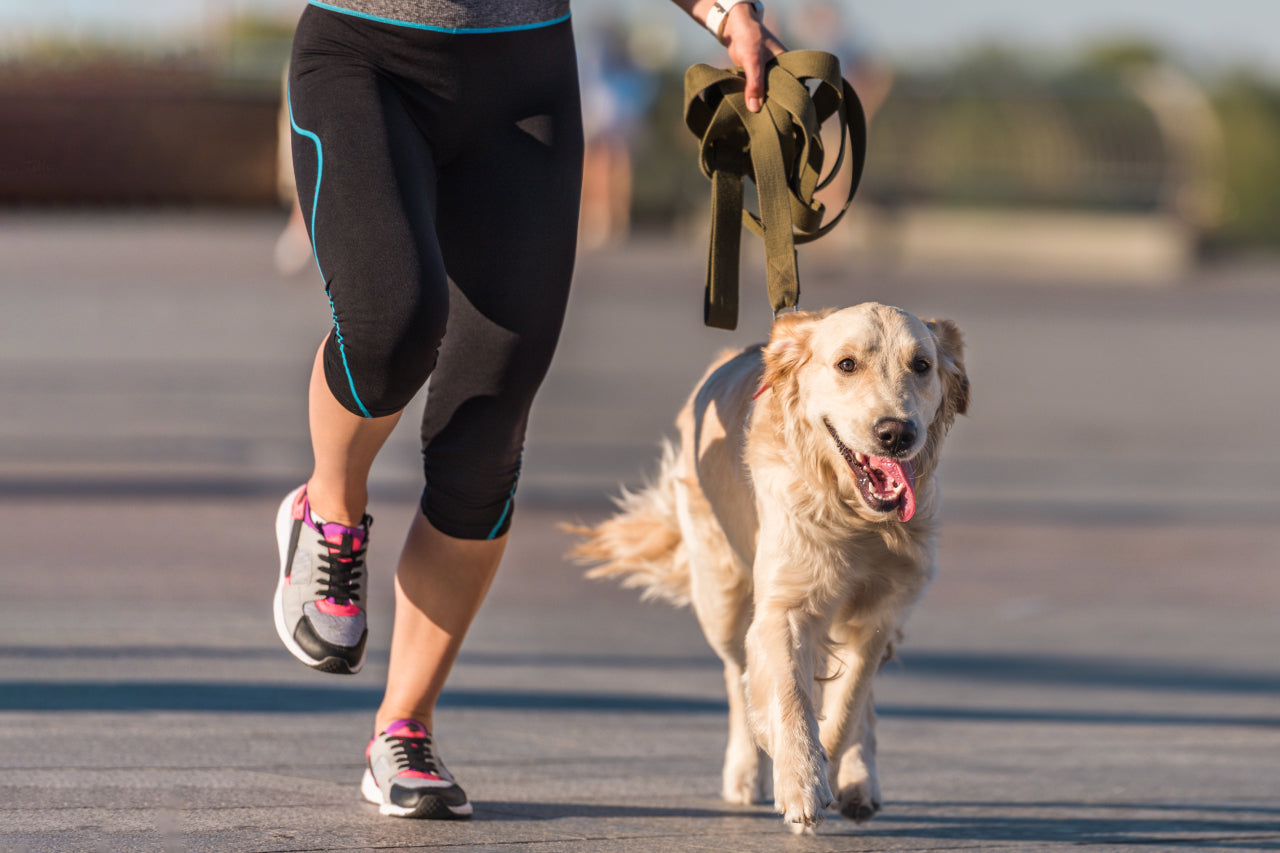
How to Leash Train a Dog
Summary
-
Leash training ensures safe, enjoyable walks while strengthening your bond with your dog.
-
Start by introducing the leash and harness positively, rewarding calm behavior with treats.
-
Teach a cue like “Let’s go!” to signal walking and focus, practicing first in low-distraction areas.
-
Begin loose-leash walking indoors, then transition to quiet outdoor spaces, gradually increasing challenges.
-
Use tools like front-clip harnesses and keep sessions short, consistent, and punishment-free.
Leash training is a vital skill that transforms walks into safe, joyful adventures for you and your dog. It keeps your pup secure in busy neighborhoods or scenic trails while fostering trust and communication, deepening your bond.
Whether your dog is a curious puppy or an energetic adult, leash training requires patience, consistency, and a positive approach. With the right steps, you can turn walks into a rewarding experience, using treats to celebrate your dog’s progress.
Let’s dive into how to leash train your dog for stress-free strolls.
Key Takeaways
Begin by introducing the leash and harness in a positive way to build your dog’s comfort. Teach a clear cue, like “Let’s go!”, to signal the start of a walk. Practice loose-leash walking indoors before moving to outdoor spaces, rewarding calm behavior with praise and treats.
However, you can use tools like front-clip harnesses, which can help reduce pulling, and keeping sessions short and consistent ensures focus. With these steps, your dog will learn to walk calmly by your side, making every outing a pleasure.
Step-by-Step Leash Training Guide
1. Introduce the Leash and Harness
Familiarization
Let your dog sniff and explore the leash and harness at their own pace. Place the gear near their favorite play area or during treat time to create a positive connection. Rushing this step can make your dog wary, so give them time to feel at ease.
Positive Association
Once your dog is comfortable, reward calm behavior with high-value treats, like Wild Earth’s plant-based treats, which are gentle on their stomach and perfect for training. Gradually increase the time they wear the harness and leash indoors, ensuring each session feels rewarding and fun.
2. Teach a Cue for Focus
Choose a Cue
Select a consistent phrase, like “Let’s go!”, or a clicker sound to signal it’s time to walk. A clear cue helps your dog understand when to focus on you, setting the stage for successful walks.
Reward Responsiveness
When your dog looks at you or responds to the cue, offer praise and a treat. Start in a quiet, low-distraction area, like your living room, to help them concentrate. This builds their habit of checking in with you, even as distractions grow.
3. Practice Loose-Leash Walking Indoors
Start Small
Walk short distances inside, such as down a hallway, keeping the leash loose. Stop and reward your dog with treats and praise when they stay by your side without pulling. This teaches them that a slack leash leads to good things.
Redirect Pulling
If your dog pulls, quickly change direction and walk the other way. When they follow without tugging, reward them generously. This shows that pulling doesn’t get them where they want, but staying close to you does.
Add Distractions Gradually
Once your dog masters loose-leash walking, introduce mild distractions, like a toy or soft noise. Reward them for staying focused, gradually building their ability to ignore distractions as they improve.
4. Transition to Outdoor Training
Begin in Quiet Areas
Move training to a calm outdoor space, like a fenced yard or quiet park. These low-distraction areas let your dog practice loose-leash walking without being overwhelmed, setting them up for success.
Short Walks First
Keep initial outdoor walks brief, focusing on rewarding loose-leash behavior with treats and praise. Even short sessions help build habits, making walks enjoyable for both of you.
Increase Challenges Slowly
As your dog grows confident, introduce busier environments with distractions like other dogs or people. Continue rewarding calm walking, helping your dog stay focused no matter the setting.
Additional Tips for Success
Use Tools Wisely
If your dog pulls strongly, consider a front-clip harness, which gently redirects their attention back to you. These tools make training easier while keeping your dog comfortable and safe.
Stay Consistent
Use the same cues and rewards every time you walk. Consistency helps your dog learn faster, reinforcing what’s expected during walks.
End on a Positive Note
Finish each session with a success, like a calm walk or a fun play moment, followed by a treat. This leaves your dog eager for the next walk, associating leash time with joy.
Avoid Punishment
Never jerk the leash or yell, as this can create fear and slow progress. Instead, redirect unwanted behaviors with positive reinforcement, keeping training stress-free.
When to Seek Professional Help
If your dog shows extreme fear, aggression, or refuses to walk despite consistent efforts, a certified dog trainer can help. They can address specific challenges, like anxiety, with tailored techniques to get your dog back on track.
Final Word
Leash training is a gradual journey, but with patience and consistency, you’ll transform walks into cherished moments with your dog. Celebrate small wins, stay positive, and use rewards to make training fun.
Every step forward strengthens your bond, turning your dog into a confident, well-behaved companion. Ready to fuel your dog’s training with healthy nutrition?
Visit WildEarth to explore plant-based treats and food that keep your pup thriving.




























